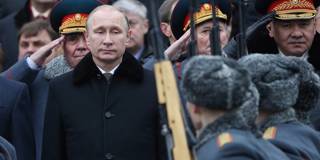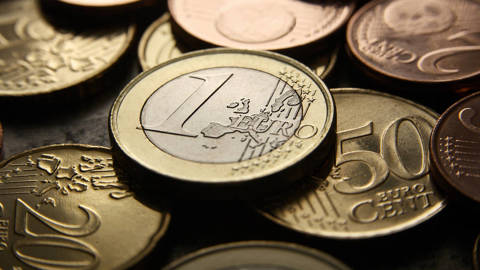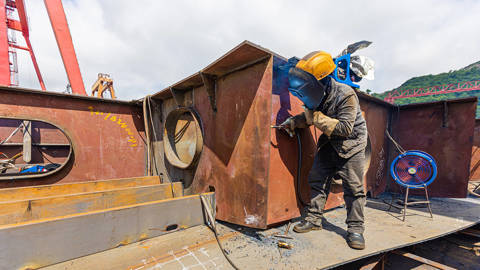Putin's Lebensraum
Having recently returned from Kyiv, Sławomir Sierakowski of the German Council on Foreign Relations speaks with Irena Grudzińska Gross of the Polish Academy of Sciences about the cultural and ideological factors driving Russia’s war on Ukraine and its broader confrontation with the West.
Irena Grudzińska Gross: What are the reasons for the war?
Sławomir Sierakowski: The reasons are mostly found in Russia’s political culture and the personality of the leader. In Russia, much depends on the leader, hardly anything on institutions. And when we speak of Russia’s political culture, we need to think about ideologies that have been formulated within Russia – a country where political manifestos still matter. Some of the defining ones today were written by Vladislav Surkov, an influential ideologue of “sovereign democracy.” Some were delivered by Putin in his speeches at the 2007 Munich Security Conference and the 2008 NATO-Russia Summit in Bucharest.
The world did not believe what it heard on those occasions, because Putin’s ideas were so out of bounds. But the message was clear: Russia is a country whose existence and meaning depends on the feeling of dignity, and dignity comes from claiming territory and being able to inspire respect (that means fear) in others.
Hence the creation, through Russia’s military, of dependent little territories like South Ossetia (in Georgia), Transnistria (in Moldova), and Donbas (in Ukraine). Russia is heavily invested in these statelets, despite already occupying one-seventh of the Earth’s land surface. The late Harvard historian Richard Pipes wrote that the Russian tradition reaches back to the Mongol conquest and stems from Russia’s territorial openness. Orthodox Christianity in the Russian, gnostic version, too, is an all-or-nothing religion – excessive respect for tradition combined with bloody revolutionary zeal. There is no independent social group like the nobility in Poland or the bourgeoisie in Western Europe.
That’s the political culture. As for the leader, he has surprised us to a certain extent because he comes from the KGB. As in judo (which he loves), Putin constantly seeks to turn the enemy’s force against itself. That is why he is constantly launching cyberattacks, influencing elections, and so forth.
Until the invasion, it seemed that Putin would stick to these methods, given that they have proven so successful in dividing the European Union, pacifying NATO, and isolating and bribing individual countries. By starting a war, he went for broke. We are surprised that he went with such a traditional method of waging war. Obviously, his time in power has entered a new phase. After starting with modernization, he focused on securing his power by building a police state. Now he is seeking to maintain his power in history, placing himself among the fathers of the old empire. With this shift, all rational calculations (at least by our understanding) have been abandoned.
Deranged History
IGG: That describes the 30,000-foot view of his actions, but how does it look on the ground?
SS: In all of Putin’s speeches and manifestos, the point of reference is White Russia, not the USSR. This point is generally missed, because people focus on his line about the collapse of the Soviet Union being the greatest geopolitical catastrophe of the twentieth century. But Putin is interested in White Russia, in a Russia comprising all Russian lands: Russky Mir. Though he once considered allowing Ukraine to go its own way, he changed his mind after Ukraine’s Orange Revolution in 2004-05. Maidan in Red Square became his nightmare. Remember, when Putin talks about Ukraine and Ukrainians, he is thinking primarily about Russians living in Russia.

SUMMER SALE: Save 40% on all new Digital or Digital Plus subscriptions
Subscribe now to gain greater access to Project Syndicate – including every commentary and our entire On Point suite of subscriber-exclusive content – starting at just $49.99
In Putin’s view, Ukraine was created from parts of neighboring countries – primarily Russia but also Poland and Romania. The rest of the “traditionally Russian” lands were given to Ukraine by the Communists. He has always put the following choice before Ukraine: territorial integrity for loyalty to Russia. In his eyes, the Ukrainians broke this contract and can now no longer expect Russia to respect their borders.
IGG: Does that mean that the war will stop at Ukraine? His speech launching the invasion seemed to suggest that it was a war against the United States. He didn’t even mention Ukraine until the middle of it.
SS: Putin is obsessed with the US, and his paranoia deepened during President Barack Obama’s tenure. Obama scrapped plans to build a missile-defense shield in Poland and the Czech Republic, but he did not withdraw from other NATO efforts. This was not lost on the Kremlin, which sincerely believes that NATO could attack Russia. Putin’s thinking is that there is no neutrality: people are either with you or they are against you. And if someone is right next to you, you have the right to dictate what they do. We are not hypocrites, Putin would say. We tell the truth, unlike the West. We will defend the world order, but we want the world order to be based on spheres of influence.
IGG: So, Putin won’t stop with Ukraine?
SS: There is one simple rule in Russian history: Moscow’s sphere ends where it is stopped last. If Poland was a Russian vassal for three centuries, why shouldn’t it be again? What has changed?
Of course, Russia will be busy with Ukraine for quite some time. But if there is a wider confrontation in which a Russia-China alliance manages to achieve some kind of advantage over the West, Russia will use that occasion to demand additional political concessions. We in Eastern Europe don’t have to wonder about it, because we were already part of the ultimatum that Putin sent to NATO in November.
Those demands concerned not only Ukraine but also Poland and the Baltic states: dismantle NATO military installations; return to the status quo ante of 1997; do not conduct military exercises without our consent. Neither the Polish president nor the prime minister reacted to this at the time.
Threat Escalation
IGG: They didn’t take the threat seriously.
SS: Not until the invasion. But now there has been a breakthrough even in German politics. The importance of this is hard to overstate. Russia is very closely connected with Germany, not only by gas but also by history. Russian identity today is based heavily on the victory over Nazism and the subjugation and humiliation of Germany in 1945. Relations since then have resembled a kind of Stockholm syndrome, a union of the vanquished with the executioner.
But that arrangement has now broken down. Before, Germany was a friend. It kept the West from reacting too strongly to Putin’s actions; it was economically dependent on Russia; and it was pacifist and largely demilitarized. Now, Germany is rearming, and this will change its status in Russia’s geopolitical orbit. The Russians took great pride in the fact that the Germans were subservient to them there. Now, that has changed. This could hurt them a lot, and it may cause them to be even more paranoid about the West.
IGG: So, you expect the war to expand?
SS: In a classical sense, Poland and the West are not at war with Russia, because there is no direct military confrontation. But Poland is the logistical base for almost all of the world’s military and humanitarian aid to Ukraine. NATO is sending Ukraine increasingly dangerous weapons. Bombs are already falling so close to Poland that they can be heard on our side of the border. Russia is not famous for its accuracy. One taboo after another is being jettisoned. Even neutral and faraway states – such as Sweden and Spain, respectively – are sending Ukraine weapons. Many former military personnel from the US, the United Kingdom, and other countries are joining the Ukrainian military. Among them are stars of previous wars, which affects the morale of the Ukrainian army.
Naturally, Russia is threatening the countries that are sending weapons to Ukraine. These moves against it will not be easy to forget, and they are multiplying by the day. We have never been closer to World War III. There is a reason why Putin reportedly has his family stowed away in a bunker in the Altai Mountains. He has been isolated from his surroundings for two years now. We know that he doesn’t use a cell phone or computer. He relies on just a few people. It is hard to say that he has a proper contact with reality.
IGG: Do you think Putin is prepared to use a nuclear weapon?
SS: Yes, of course. Putin likes to point out that his KGB file identified him as having a low propensity for risk-taking. This is a pejorative assessment in KGB terms, but he boasts about it. But he also adheres to the credo that, once a confrontation becomes inevitable, strike first.
Tellingly, Surkov just recently published a manifesto about “the end of shameless peace.” This is an old Nazi cliché from the 1920s. The idea is that the Soviet Union fell without actually losing the war with the West. It was betrayed and humiliated by liberal elites like Mikhail Gorbachev. But Russia is still a great power, and its place in the world should reflect that. It follows that Putin has the right to defend the Russian minority in other countries, just as Hitler did with respect to Germans in the Czech Sudetenland.
Remember when Obama called Russia a “regional power”? That angered Russians terribly. Surkov argues that the settlement established in the 1990s is unsustainable, that it has no structural reasons or justification, and that it does not correspond to the balance of forces – especially today, when Russia’s military is much stronger than it was back then.
The Ukrainian Moment
IGG: Putin has told the Russian people that he is trying to “de-Nazify” Ukraine. Did you encounter any fascists or Nazis when you were there?
SS: This myth is similar to the Protocols of the Elders of Zion – the fraudulent early twentieth-century Russian text claiming that Jews were plotting world domination. When I was in Kyiv, what I wanted most was to meet the people in power, because they were completely new to me. I had heard criticism of Ukrainian President Volodymyr Zelensky, and I wanted to see if any of it was true.
I am now in touch with his team, and I have the best opinion of them. Many are former soldiers. They are very patriotic. Not even Odessa or Kharkiv (two mostly Russian-speaking cities) will submit to Russia willingly. People who know Russia – including Russians themselves – do not want to join it.
Nationalist sentiments were stronger before. Ukraine deserved this nationalist moment. Every country that is in the process of construction goes through such a moment of self-celebration. Ukraine is doing it very softly, with no nationalist party becoming preeminent. The leader of the Right Sector, constantly present in Russian propaganda during the 2019 presidential election, got only 1% of the vote.
Putin, meanwhile, is the one behaving like a Nazi. His “defense of Russians” rationale is taken straight from Hitler’s Sudeten crisis playbook. The Kremlin has deep ties not only to the criminal underworld but also to neo-Nazis. Think about the licensed opposition that was installed in Donbas under Igor Strelkov. The Wagner Group, a private company of mercenaries whom Putin has deployed in Africa and Syria, was founded by neo-Nazis. Nashi, the pro-Russian Ukrainian party, is a fascist movement. It is Kremlin ideologues like Aleksandr Dugin who are the fascists.
IGG: How should we think of Ukraine now?
SS: Today’s Ukraine, thanks to Putin’s war in Donbas, is a militarized nation. There, for the past eight years, the evening news on television has begun with news from the front. Half a million people had acquired military experience – and guns – from the ongoing war. Their Cossack identity is founded on the concept of struggle, freedom, and independence. Their fighting spirit should be no surprise.
IGG: So, Ukrainian resistance will last a long time?
SS: Not just Ukraine. Poland will also have to militarize, because it is the conduit between Ukraine and Europe. That is bad news for Polish democracy. The current illiberal government will either come to an agreement with the opposition, or it will count on Europe turning a blind eye to what it does at home because it is defending the West. The second option seems more likely to me.
History is coming back. We are all dusting off old books about world order. Intellectually, this is the most interesting moment in my life. Yet at the same time, life as we knew it has ended, especially in Poland.
IGG: That is already apparent. We now have well over 1.5 million refugees, 80% of them are women with children, and the number is growing. How will this influence Polish democracy and European democracy? The wave will spread over the entire EU.
SS: Until recently, Poland was one of the most ethnically homogeneous societies in Europe, rife with anti-refugee, anti-Ukrainian phobias. It is Putin who brought us together. For now, we have enormous enthusiasm and an almost boundless wish to help. And it’s the same throughout the EU – the outpouring of support for the refugees, from governments and ordinary people alike, has shown Europe at its best.
But it cannot last. People will get tired. The emotional economy, like the real one, is cyclical: Today’s euphoria will become tomorrow’s resentment. There will be an expectation of gratitude, a narcissism of kindness, an envy of public assistance. Perfect ground for nationalism. In Poland, what is needed is financial help from the West. Otherwise, Poland will be unable to support such a mass of new arrivals. Poland could suddenly have a 10% minority! To the extent that the refugees fan out across the EU, the impact on European democracy will depend in part on how effectively EU institutions respond to the new challenges member states must confront.




